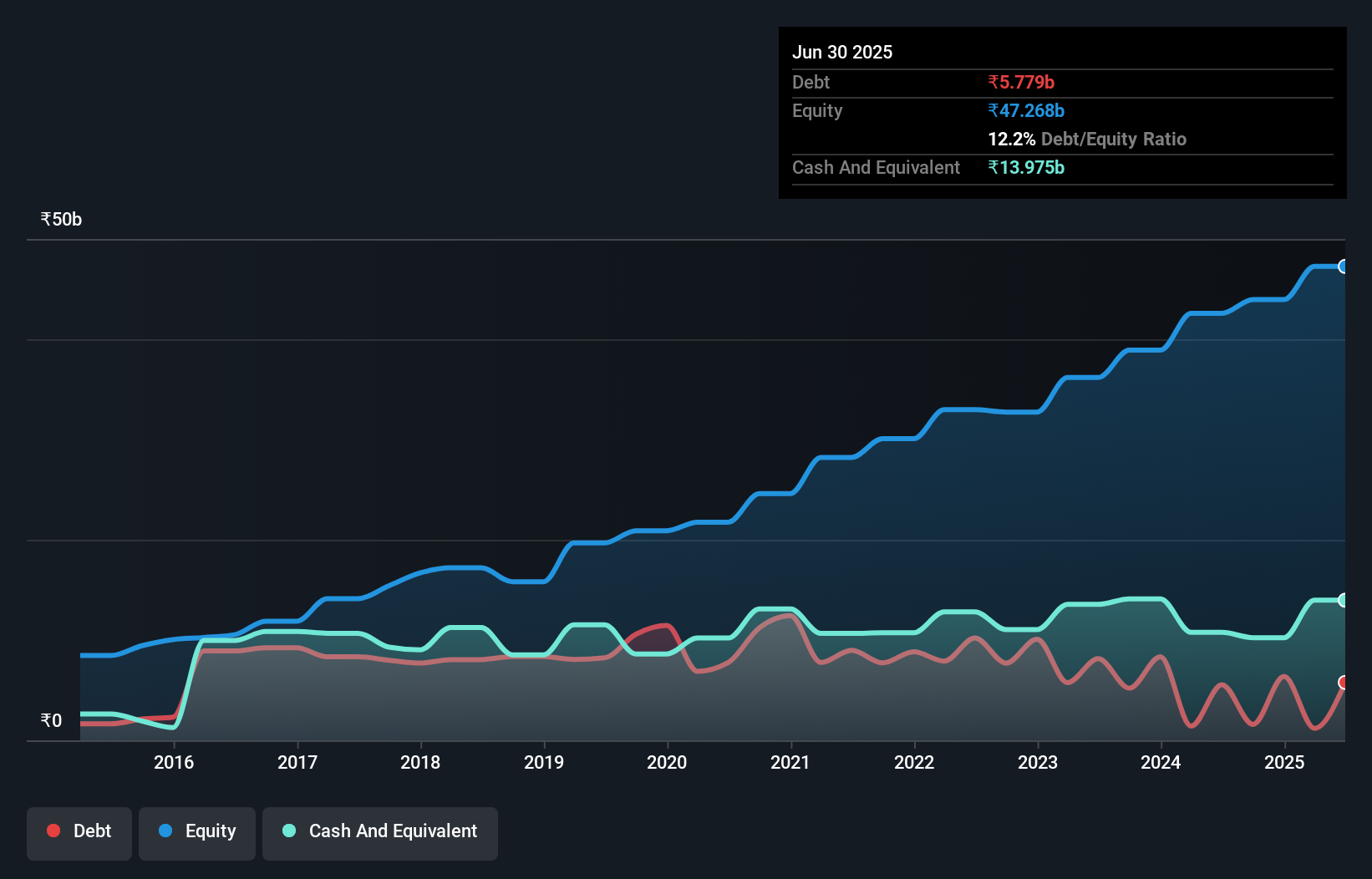- India
- /
- Life Sciences
- /
- NSEI:SYNGENE
Does Syngene International (NSE:SYNGENE) Have A Healthy Balance Sheet?
Howard Marks put it nicely when he said that, rather than worrying about share price volatility, 'The possibility of permanent loss is the risk I worry about... and every practical investor I know worries about.' So it seems the smart money knows that debt - which is usually involved in bankruptcies - is a very important factor, when you assess how risky a company is. We note that Syngene International Limited (NSE:SYNGENE) does have debt on its balance sheet. But should shareholders be worried about its use of debt?
What Risk Does Debt Bring?
Generally speaking, debt only becomes a real problem when a company can't easily pay it off, either by raising capital or with its own cash flow. Part and parcel of capitalism is the process of 'creative destruction' where failed businesses are mercilessly liquidated by their bankers. However, a more common (but still painful) scenario is that it has to raise new equity capital at a low price, thus permanently diluting shareholders. Of course, the upside of debt is that it often represents cheap capital, especially when it replaces dilution in a company with the ability to reinvest at high rates of return. The first thing to do when considering how much debt a business uses is to look at its cash and debt together.
How Much Debt Does Syngene International Carry?
You can click the graphic below for the historical numbers, but it shows that as of March 2025 Syngene International had ₹5.78b of debt, an increase on ₹5.55b, over one year. But on the other hand it also has ₹14.0b in cash, leading to a ₹8.20b net cash position.

How Healthy Is Syngene International's Balance Sheet?
Zooming in on the latest balance sheet data, we can see that Syngene International had liabilities of ₹14.0b due within 12 months and liabilities of ₹6.73b due beyond that. Offsetting this, it had ₹14.0b in cash and ₹5.51b in receivables that were due within 12 months. So it has liabilities totalling ₹1.21b more than its cash and near-term receivables, combined.
Having regard to Syngene International's size, it seems that its liquid assets are well balanced with its total liabilities. So it's very unlikely that the ₹260.8b company is short on cash, but still worth keeping an eye on the balance sheet. Despite its noteworthy liabilities, Syngene International boasts net cash, so it's fair to say it does not have a heavy debt load!
See our latest analysis for Syngene International
Also good is that Syngene International grew its EBIT at 10% over the last year, further increasing its ability to manage debt. There's no doubt that we learn most about debt from the balance sheet. But ultimately the future profitability of the business will decide if Syngene International can strengthen its balance sheet over time. So if you're focused on the future you can check out this free report showing analyst profit forecasts.
Finally, while the tax-man may adore accounting profits, lenders only accept cold hard cash. Syngene International may have net cash on the balance sheet, but it is still interesting to look at how well the business converts its earnings before interest and tax (EBIT) to free cash flow, because that will influence both its need for, and its capacity to manage debt. Over the most recent three years, Syngene International recorded free cash flow worth 68% of its EBIT, which is around normal, given free cash flow excludes interest and tax. This cold hard cash means it can reduce its debt when it wants to.
Summing Up
We could understand if investors are concerned about Syngene International's liabilities, but we can be reassured by the fact it has has net cash of ₹8.20b. The cherry on top was that in converted 68% of that EBIT to free cash flow, bringing in ₹4.0b. So is Syngene International's debt a risk? It doesn't seem so to us. We'd be very excited to see if Syngene International insiders have been snapping up shares. If you are too, then click on this link right now to take a (free) peek at our list of reported insider transactions.
At the end of the day, it's often better to focus on companies that are free from net debt. You can access our special list of such companies (all with a track record of profit growth). It's free.
New: Manage All Your Stock Portfolios in One Place
We've created the ultimate portfolio companion for stock investors, and it's free.
• Connect an unlimited number of Portfolios and see your total in one currency
• Be alerted to new Warning Signs or Risks via email or mobile
• Track the Fair Value of your stocks
Have feedback on this article? Concerned about the content? Get in touch with us directly. Alternatively, email editorial-team (at) simplywallst.com.
This article by Simply Wall St is general in nature. We provide commentary based on historical data and analyst forecasts only using an unbiased methodology and our articles are not intended to be financial advice. It does not constitute a recommendation to buy or sell any stock, and does not take account of your objectives, or your financial situation. We aim to bring you long-term focused analysis driven by fundamental data. Note that our analysis may not factor in the latest price-sensitive company announcements or qualitative material. Simply Wall St has no position in any stocks mentioned.
About NSEI:SYNGENE
Syngene International
A contract research and manufacturing company, provides drug discovery and development services in India, the United States of America, Europe, and internationally.
Flawless balance sheet second-rate dividend payer.
Similar Companies
Market Insights
Community Narratives





